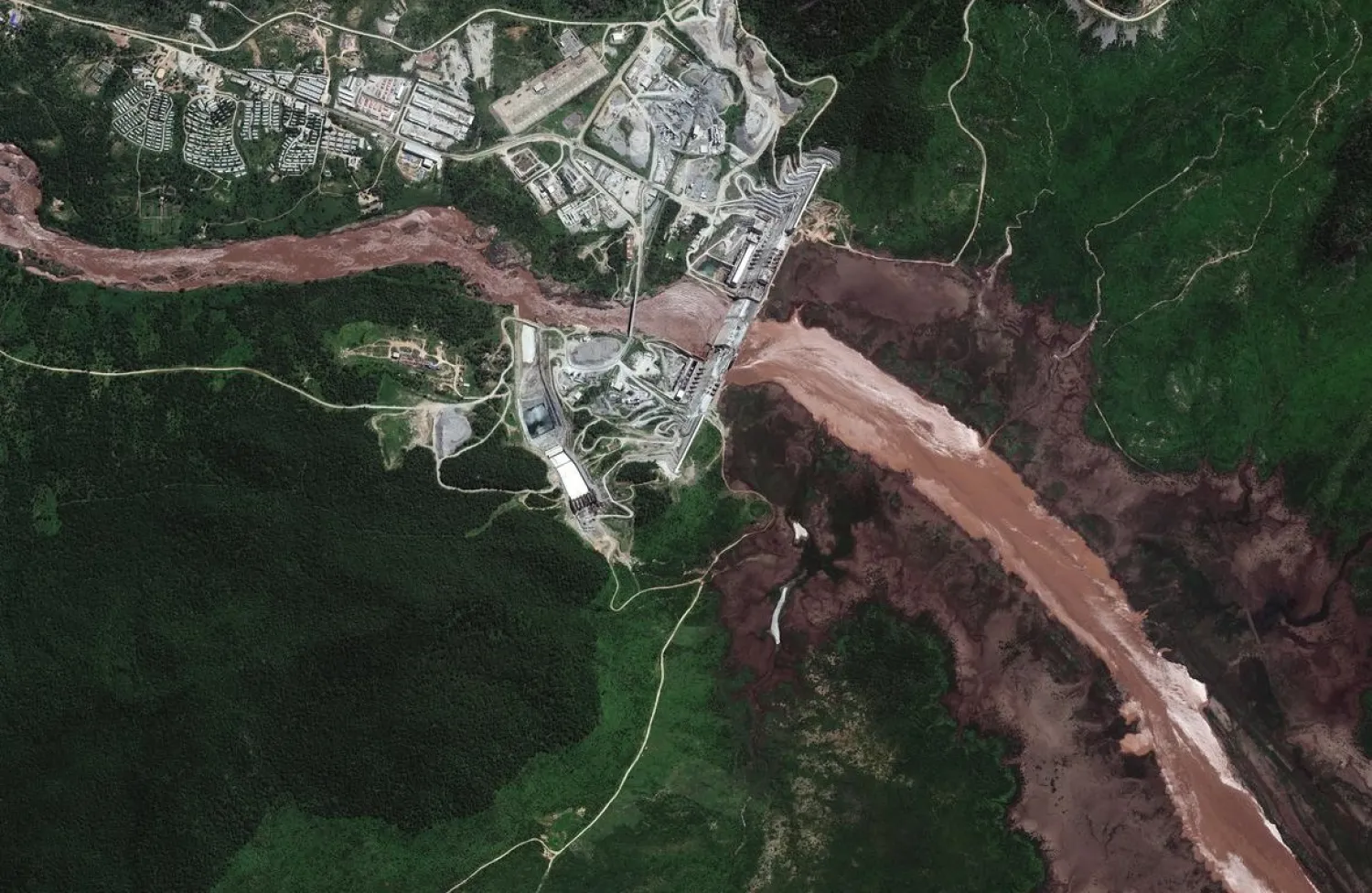The Egyptian and Sudanese governments were coordinating to monitor the flow of the Blue Nile waters in Ethiopia and review the impact of the Grand Ethiopian Renaissance Dam (GERD) on their annual share.
According to Egypt’s Ministry of Water Resources and Irrigation, monitoring and forecast data indicate that “this year’s flood is promising, but its size could be determined in late October.”
Egypt’s Permanent Committee for Regulating the Revenue of the Nile River held a meeting on Monday chaired by Irrigation Minister Mohamed Abdel Aty.
The meeting was attended by the ministry's executive leaders and was aimed at following up on the flood situation for this year and the rain condition on the Blue Nile.
The committee’s data revealed that the rates of rain are increasing at the Nile’ upstream.
Initial indications of the flood are likely to be higher than the average, it added, noting that August 2020 data was higher than that of 2019. However, the committee affirmed that it is still “early to issue a final judgment on the type and size of the flood this year pending September and October.”
During the past few weeks, Khartoum has seen an unprecedented increase in rainfall and the water level.
“Coordination is around the clock between Cairo and Sudan’s irrigation ministers, as part of the cooperation, exchange of data and information and joint measurements made in some measurement stations,” the committee explained.
Abdel Aty stressed the importance of removing infringements on waterways, especially in the Nile River course, noting that they limit the network's ability to absorb excess water in times of emergency or during floods.
The dam, which Addis Ababa began constructing in 2011 on the Nile River, raises many Egyptian and Sudanese concerns.
Cairo fears the potential negative impact of GERD, which Addis Ababa is constructing on the Nile River, on the flow of its annual share of the Nile’s 55.5 billion cubic meters of water especially that it relies on it for more than 90 percent of its water supplies.
Addis Ababa, however, said the dam is not aimed at harming Cairo or Khartoum’s interests, stressing that the main objective is to generate electricity to support its development.
African Union-sponsored talks among the three countries over the operation and filling of the mega-dam have faltered.
Ethiopia has completed about 75 percent of the construction work, and finished in July 2020 the first phase of filling its reservoir, in preparation for its operation.









